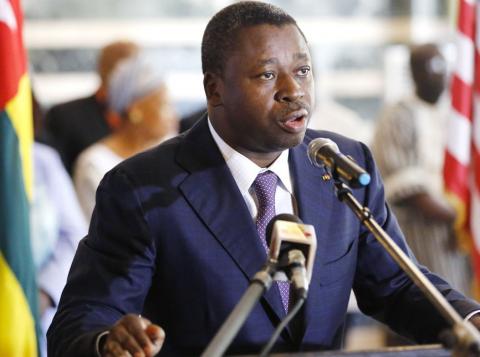Togolese President Faure Gnassingbé lamented on Friday the negative effects of the socio-political crisis on the growth of the economy.
“We must recognize that recently, attitudes fed by the fever of political and social demands have resulted in threatening national cohesion, weakening the social bond and inflicting a significant decline in our economy,” he said. declared in a speech commemorating the 58th anniversary of Togo’s accession to international sovereignty.
A situation which, according to him, “relieves” the country of the fruit “of the many efforts made to promote growth and development”.
The country is experiencing a political crisis related to a revision of the constitution, included in a Global Political Agreement (CPA) signed on August 20, 2006. The opposition calls for an amendment that takes into account the limitation of the number of mandates. presidential elections with immediate effect, while the majority believes that “the law has only for the future”.
In addition to these demands, since the end of January 2018, officials have also been observing quasi-weekly strike action, particularly in the education and health sectors.
On a mission to Lome in early April, a delegation of the International Monetary Fund (IMF) warned that these tensions “pose a risk to the prospects for economic growth with a negative impact on the real economy and tax revenues.”
“Economic activity slowed down in the second half due to socio-political unrest. As a result, the growth rate of the economy is estimated at 4.4% in 2017 against 5.1% in 2016 “, announced the IMF, which also forecasts a” slightly lower than 5% “rate for 2018 .



